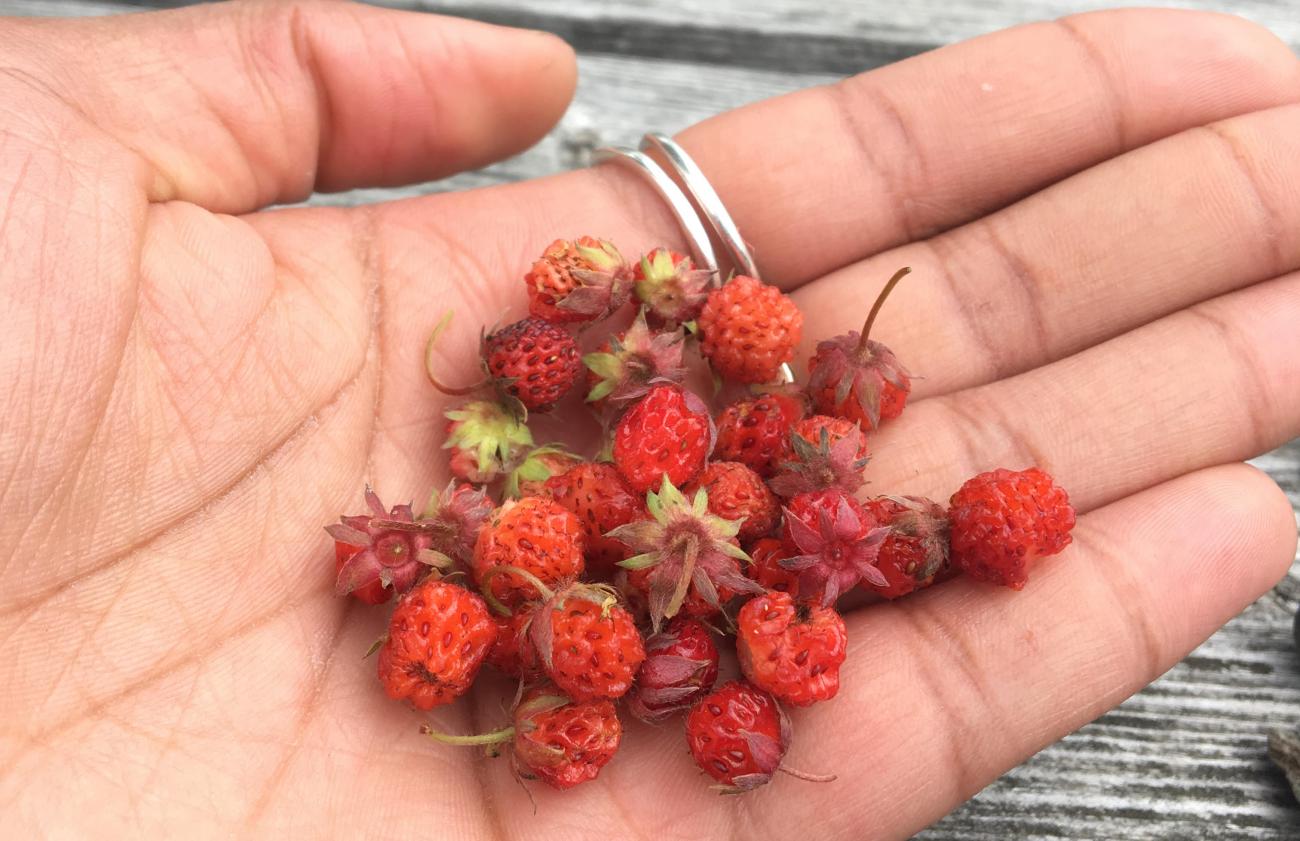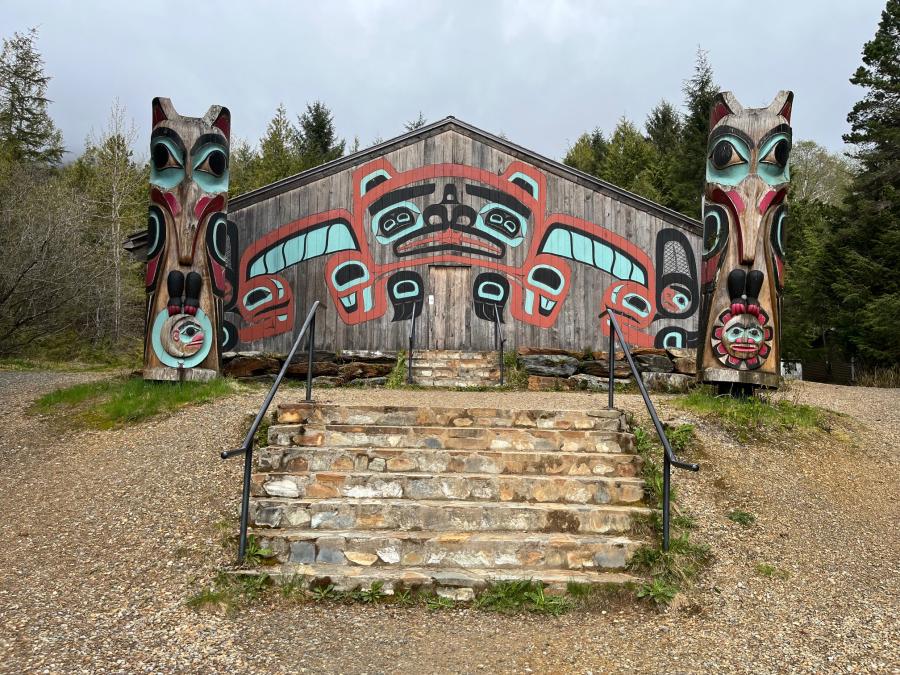
The Eastern Woodlands Rematriation Collective sustains “the spiritual foundation of traditional livelihoods through sustainable food and agroecological systems” in the New England area. The Collective’s projects are rooted in the reclamation of traditional food, wild medicines, and ecological knowledge through exchange, mutual aid, and apprenticeship within Tribal territories of the northeast. These projects focus on local infrastructure needs of their various food cultivation spaces with the goal of building capacity through trust and care to others. Now more than ever, centering Indigenous food systems and restoring kinship is necessary to save our planet and the most vulnerable communities from the devastating effects of climate change.
Led entirely by Indigenous womxn and Two-spirits, the Collective aims to be “non-exploitative” and “regenerative.” Rematriation, Collective members explain, “supports the expression of our power from within; this expression is reciprocal and in the service of our relatives.” Why is this necessary, particularly regarding the role of womxn and Two-spirits? “This balanced way of life,” Members of the Collective say, “has been violently tested, limited and stripped away from our womxn, Two-spirits, and youth. The traumas of surviving over 400 years of colonization and genocide has manifested through lateral violence, partner abuse, and high rates of substance abuse and suicide in many of our communities. What we desperately need as womxn and Two-spirits are spaces to heal, organize, and strategize on ways to escape the colonial systems that are designed to keep us oppressed, unhealthy, and disconnected from the earth and our way of life. In a matriarchal framework power becomes transformative. The process of rematriation re-powers our people and allows us to remember that we have what it takes to live healthy balanced lives. By centering Indigenous womxn and Two-spirits as medicine people, midwives, and food producers, we are rematriating our food and economic systems in a way that’s more resilient and just.”

The projects the Collective carries out take place throughout New England. In the north, they work with the Maliseet, Mi’kmaq, Passamquoddy and Penobscot peoples and families; in the south, they work with Nipmuc, Wampanoag, Massachusett, Narragansett, Mohegan Peoples and families as well as urban, mobile, and displaced Native people.
One of the primary projects carried out by the Collective is the Wabanaki Herbalism Apprenticeship Program, which aimed to foster exchange, dialogue, and sharing of knowledge of Indigenous health practices with the long-term goal of developing a Tribal community apothecary and trained traditional birth and death practitioners who can serve local communities. The Collective states that “by training and convening healers in our communities we are building and reclaiming ancestral knowledge and making non-pharmaceutical health more accessible while reducing our reliance on pharmaceuticals...The apothecary is a space where we can deliberately assure the continuance of traditional healers.”
Given that the apothecary plays such an essential role in the community, expanding the number of trained individuals who understand Indigenous medicine through the aforementioned Apprenticeship Program was the logical next step for the Collective. In it, participants learned about plant identification and harvest, cultural relationships with plants, making medicines and clinical application, home first aid, maternal health, prevention, recovery, and more.

Since receiving the Keepers of the Earth Fund grant, the Collective has trained 12 apprentices through its Wabanaki Herbalism Apprenticeship Program. Its one-year apprenticeship will be finished at the beginning of May. The Collective told Cultural Survival, “Apprentices continue studying and gathering medicines to begin by first building their home apothecary and second, a community apothecary to share among kin networks.”
In addition, the Collective held multiple intensive sessions about food and land access all grounded in spirituality and values of rematriation. This included medicinal gatherings and teachings at our homes, reservation, and sites of special cultural significance, the building of a home and community apothecary, and a Roots and Barks Medicinal Session, which had participation from prospective apprentices from Southern New England.
Finally, the Collective was able to create an inter-Tribal herbal medicine donation list to address the needs of the communities it works with, which include “maternal health, anxiety/depression, culturally significant medicines, and addiction.” In the same vein, the Collective shared medicines for tea and salves with womxn of Southern New England.

Photo by June Sapiel.
“What is most beautiful about how far we have come in this grant period is the interaction we are witnessing among womxn and Two-spirits from different Tribal communities in the northeast and the ways members are building with each other and offering their own unique gifts and power for the betterment of the collective and all of our respective families, kin and homelands,” says co-founder Kristen Wyman (Natick Nipmuc). “Many Tribes are conditioned to be siloed, to focus only on their community or in the case of many fed Tribes, to focus only on other federally recognized Tribes. Oftentimes, this leaves out families and individuals who have relocated for various reasons and aren't directly being serviced by their Tribal governments, are living in urban areas, and/or state recognized Tribes who hold important knowledge and continue defending land, but are often left out of decision making and social political spaces. To see this level of grassroots organizing and exercise of self-determination among Indigenous womxn and Two-spirits is really inspiring.”
“Unfortunately with COVID-19,” it's more and more clear “how the system we’re in...does not acknowledge our humanity,” said co-founder Nia Holley (Nipmuc). “Given how COVID-19 has amplified the struggles Indigenous communities already face, the Collective has developed programs to adapt to the current crisis. Since mid-March we have been hosting weekly community care sessions, offered to our member families and Indigenous kin networks,” Wyman said. “Each week is either focused on food as medicine, or as a space for participants to speak about their experiences and find community.”
The Collective is also strengthening its mutual aid response for Tribal families by surveying members and identifying their needs, as well as distributing seeds, remedies, and produce from Maine to Massachusetts, as well as in parts of Connecticut and Rhode Island. This involvement on a regional level is critical; and to quote co-founder Alivia Moore (Penobscot), “Our local struggles are also connected to regional struggles across our Tribal communities.”
The Eastern Woodlands Rematriation Collective plans to continue its Apprenticeship Program after a successful past year. “We are offering apprentice opportunities to members in Southern New England who will formerly be offered an apprentice spot for the year two apprenticeship,” Wyman said. The Collective will also be “creating opportunities for youth to engage in apothecary development and herbalism as part of a substance abuse prevention program.”
Over the past year, the Collective has succeeded in promoting a balanced approach toward medicine, healing, and food and economic systems. Despite the challenges COVID-19 poses toward vulnerable communities, which includes Indigenous Peoples, the Collective is working hard to meet many urgent needs of its members, and continues to plan for its future work and progress toward enriching individuals, their kin networks, and our planet.
Photos courtesy of Eastern Woodlands Rematriation Collective facebook page.



